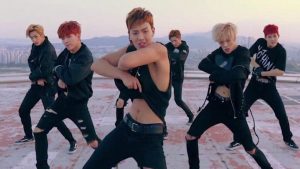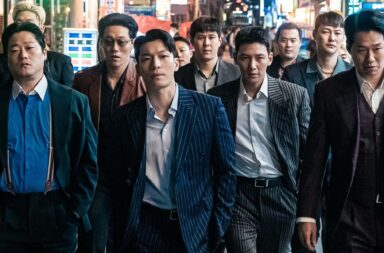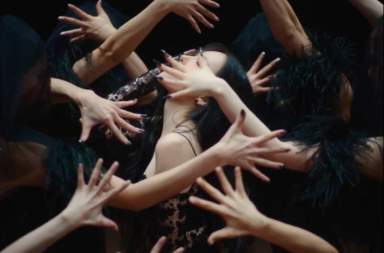 Heroes are a fact of life. They exist in every culture, every language. After all, heroes are the foundation of storytelling—they’re the person we all root for to succeed as whatever tale in engaging us unfolds. However, it’s accepted that heroes aren’t real. We put them in stories because we can’t find them in real life. More than that, heroes only exist in certain types of stories. In most media, the main character is a protagonist. “Hero” is a term used in fairy tales, comic books, and romance novels—pure fantasies that no one expects to resemble reality. So when musicians use the word hero, they’re invoking ideas of dedication, protection, and chivalry that we’ve all accepted don’t exist.
Heroes are a fact of life. They exist in every culture, every language. After all, heroes are the foundation of storytelling—they’re the person we all root for to succeed as whatever tale in engaging us unfolds. However, it’s accepted that heroes aren’t real. We put them in stories because we can’t find them in real life. More than that, heroes only exist in certain types of stories. In most media, the main character is a protagonist. “Hero” is a term used in fairy tales, comic books, and romance novels—pure fantasies that no one expects to resemble reality. So when musicians use the word hero, they’re invoking ideas of dedication, protection, and chivalry that we’ve all accepted don’t exist.
The clearest example of this is VIXX’s “Super Hero.” The comic book usage of the word is in full force, with VIXX comparing being in love to being a superhero. They are elated and joyous, wanting to give this girl everything they can, laws of physics be damned.
Eat lunch in Paris and then fly to New York (anything is possible)
I will turn your imagination to reality (this is just the beginning)
Breathtaking and Fantastic Fly to the world you want
I can give you everything, what do you want?
Trust me, oh I will protect you girl
This is the most benevolent usage of the term “hero,” one that displays VIXX’s desire to simply make a girl happy, and are willing to give her anything she wants in order make her smile. They offer her a world in which its details are impossible, because reality just doesn’t do their feelings justice. She makes them feel like superheroes, so they act like it. Sure, superheroes aren’t real, but a touch of self-aware fantasy never really hurt anyone.
On the other hand, you have tracks like Monsta X‘s “Hero.” While Vixx uses hero to invoke a blatant departure from reality, Monsta X is extremely straightforward in playing with the idea of being a girl’s hero. Here, the heroes that Monsta X are emulating are knights and other fairy tale heroes. As they try to woo her by repeating “I can be your hero, I can be your man,” the group declares their intention to protect a girl and save her from a world trying to bring her down.
 However, the idea of heroism presented here is unnerving, bordering on ugly. The song itself is powerful, almost angry posturing, and the lyrics are less about wooing their crush object than winning her. In fairy tales, the reward for defending the fair maiden is her hand in marriage. Monsta X is clearly operating on the same logic. Their only idea of heroism is “defending” the girl they fancy against other interested men, outright referring to their competitors as villians, and the girl as a princess. They believe acting as her protector entitles them to this girl’s love, rather than any other bond with her. “Hero” handily demonstrates why heroics like this don’t work in real life: if you’re together, it’s a semi-romantic red flag. If you’re not, it’s grounds for a restraining order.
However, the idea of heroism presented here is unnerving, bordering on ugly. The song itself is powerful, almost angry posturing, and the lyrics are less about wooing their crush object than winning her. In fairy tales, the reward for defending the fair maiden is her hand in marriage. Monsta X is clearly operating on the same logic. Their only idea of heroism is “defending” the girl they fancy against other interested men, outright referring to their competitors as villians, and the girl as a princess. They believe acting as her protector entitles them to this girl’s love, rather than any other bond with her. “Hero” handily demonstrates why heroics like this don’t work in real life: if you’re together, it’s a semi-romantic red flag. If you’re not, it’s grounds for a restraining order.
A far healthier example of the same concept is Shinhwa‘s “Hero.” Like Monsta X, they want to prove their love to a girl by being her hero. Unlike Monsta X, they understand that true heroism isn’t fixing a girl’s problems, it’s supporting her while she faces things on her own.
Follow me now so you don’t get lost
Don’t fall so easily; I’ll grab you
Deep inside your heart hides whatever dream you look for,
Go on, with hero in your mind.
Instead of trying to cloister her, Shinhwa pushes their loved one to chase her own dreams, while reminding her that she doesn’t have to do so alone. If she needs advice or guidance, they will be there to offer it. If she stumbles, they will help her up. It is not concern-trolling, it is genuine concern that she might be too stubborn accept needed assistance. Even on the bridge, when the girl is described to be at her lowest, Shinhwa doesn’t swoop in to pick her up. Instead, they beg her to take their proffered hands to pull herself up. No man is an island , after all, and there is no shame in accepting help offered by those who care about you. Shinhwa’s “Hero” understands that heroism isn’t about what you want, it’s about what someone else needs.
So, if heroes are unrealistic paragons whose purpose is to aid the public, or maybe one special someone, what about heroines? What sets the female hero apart from the male? The answer is best exemplified in “Heroine” by Sunmi. And what does she do to perfectly encapsulate that difference? Well, she’s a heroine. They don’t do much.
 Women have historically been restricted in their activities, their responses, their actions. Basically, for large swaths of history, women had no say over their own lives and no agency to change them. The only option was to endure, and this became the default quality of women. To this day, writers struggle to overcome the trope of men act, women are. Thus, heroines became, not women who accomplished great deeds and took great actions, but women who are expected to keep going anyway even when life hands a trainwreck to them. This is something that rings particularly true when thinking of K-dramas. The heroines of such are usually sweet and hardworking, making up for their lack of status through drive and resilience.
Women have historically been restricted in their activities, their responses, their actions. Basically, for large swaths of history, women had no say over their own lives and no agency to change them. The only option was to endure, and this became the default quality of women. To this day, writers struggle to overcome the trope of men act, women are. Thus, heroines became, not women who accomplished great deeds and took great actions, but women who are expected to keep going anyway even when life hands a trainwreck to them. This is something that rings particularly true when thinking of K-dramas. The heroines of such are usually sweet and hardworking, making up for their lack of status through drive and resilience.
In “Heroine,” Sunmi compares her life and relationship to a drama—he’s the charming, cold, bad boy, while she’s the devoted girlfriend. But this isn’t a drama. Her love doesn’t change him. Like any drama hero, her boyfriend is mean, neglectful, and oblivious to the unhappiness Sunmi has resigned herself too. Yet, she doesn’t try to change him or end this unhealthy relationship. Instead, she becomes a heroine, and makes the choice to see this through, for better or for worse. The show must go on.
Heroes are older than writing. They are idealized parts of our childhood, parts that we often wish did exist in the real world. And they can, just in a different way. Are there any heroic songs that you truly adore? Leave them in the comments.
(Color Coded Lyrics, Kizurika. Images Via MakeUs Entertainment, Jellyfish Entertainment, Starship Entertainment)


